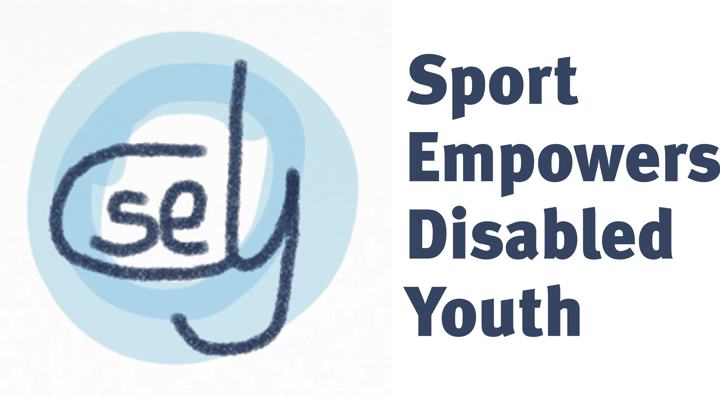


The findings of the focus group research and the expertise within the SEDY2 project team are translated into practical materials to create more inclusion in sport for youth with a disability. Together, these practical materials form the Sport Participation and INclusion (SPIN) tool. The SPIN tool has been implemented amongst the educational as well as sport institutes participating in this project. On this page, the practical materials will be explained and can be downloaded to spread and use in practice.

The Inclusion Handbook (Saari, Szergejev & Dekkers, 2022) is aimed at anybody involved in running or working in a sport club, such as a volunteer, a coach, or a club member. The goal of the handbook is to facilitate disability inclusion among mainstream sport providers by sharing SEDY2 project partners’ best practices and inclusive ideas.
Click here to download the Inclusion Handbook for Sport Clubs (2022)

This Inclusive (Online) Focus Group Guidance (Dekkers, Kerkstra & Holla, 2021) aimed to develop an easy-to-use guidance document on how to deliver inclusive focus groups to attain the authentic views, wishes and feelings of children and youth with a disability about inclusion in sport in practice. This guidance document was produced in order to support other practitioners in conducting inclusive focus groups. The focus group guidance can easily be adapted to cover other topics and can also be used effectively with all (young) people.
Click here to download the Inclusive (Online) Focus Group Guidance (2021)
Click here for the results of the SEDY2 focus group research on inclusion in sport

The Personal Adapted Physical Activity Instructor (PAPAI) programme is a social support model intervention where a student or volunteer helps a child or young person with disabilities to find a suitable sport hobby. The aim of the programme is to help children and youth with disabilities to find a hobby in sports or physical activity settings and increase their physical activity levels. The goal of the PAPAI handbook (Saari, Kerkstra & Ketola, 2020) is to provide all necessary information for institutions such as universities and municipalities to launch a national PAPAI programme or similar initiative.
Click here to download the PAPAI programme handbook (2020)
Click here to view the supplementary videos to help promote the programme across various target groups such as students and volunteers, adapted physical activity teachers, sport clubs and families of children and youth with a disability.

The Collection of Inclusion Best Practices (Pimenta, Dekkers & SEDY2 team, 2021) report contains good examples of inclusion on youth with a disability in sport at the community and institutional level. This report includes a detailed description of the process of building and using the SEDY2 approach for collection international best practices in sport, the criteria and template used to collect the SEDY2 best practices and the list of SEDY2 international best practices on inclusion in sport for youth with a disability.
Click here to download the Collection of Inclusion Best Practices report (2021)

One of the aspects found on the meaning of inclusion in sport is that children and young people with a disability want to have a choice in sport. But where can youth find sport opportunities? Even though people have access to more information than ever before, the information is often scattered across the internet. Sport clubs with suitable offers often do not reach their target groups through their traditional marketing and communication channels. The Hobby Finder Tool report (Jaakkola, Ketola & Dekkers, 2021) describes existing online hobby finder platforms (Löydä oma seura (FI), ParaMe (SE) & Uniek Sporten (NL)) that makes it possible to search for applied sporting possibilities. In this report different platforms are compared and best practices are shared.
Click here to download the Hobby Finder Tool report (2021)
Please help us spread the word and share all practical materials and interventions within the SPIN tool to create more inclusion in sport for youth with a disability!
Download the full package of practical materials within the SPIN tool.
This SPIN tool is partially based on results and interventions of the previous SEDY1 project.